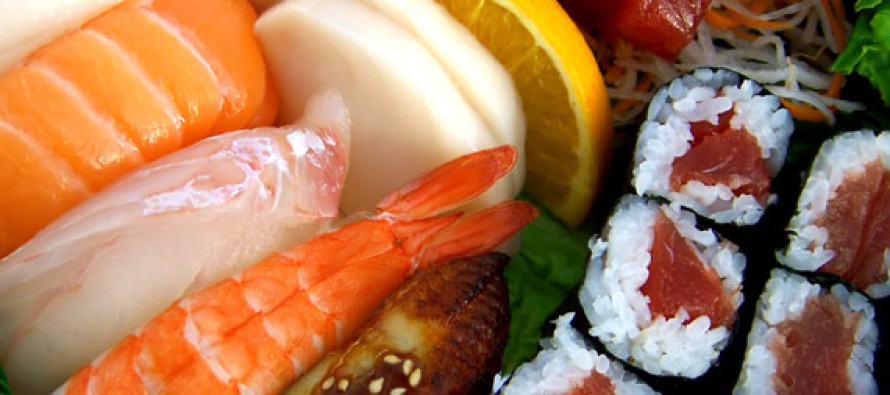Sushi gene is found

Researchers believe genes have transferred from marine bacteria to gut microbes.
In an article published in Nature on 8 April 2010, J. H. Hehemann and other researchers reported that marine bacteria which stick to seaweed have transferred their genes to microbes in the guts of Japanese people.
Seaweeds contain a lot of a particular kind of sugar called porphyran, and the researchers discovered the genes for enzymes that can break down porphyran in the genome of a marine bacteria called?Zobellia galactanivorans. They also discovered that the Japanese gut microbe,?Bacteroides plebeius,?has a similar gene.
When they analyzed the genomes of bacteria from the stomachs of 13 Japanese people and 18 North American people, similar genes to break down porphyran were detected in some of the Japanese samples, but not in any of the North American samples.
Because the porphyran-related genes found in the gut microbes are so similar to those in marine bacteria, the researchers concluded that these genes have transferred from marine bacteria.
Seaweeds are a traditional food for Japanese people, who eat around 14 grams per day of seaweeds likenori?and?wakame?in dishes such as sushi and miso soup. But these seaweeds were often not cooked or sterilized, so the bacteria in people’s stomachs came in contact with marine bacteria that were attached to the seaweed. The researchers think this contact may have allowed the transfer of genes from marine bacteria to gut microbes.
Human beings cannot digest plants, but instead have gut microbes which help with digestion. Sometimes, as in this case, contact with other bacteria may increase the functions of our gut microbes. Justin L. Sonnenburg, writing in News & Views, Nature 8 April 2010, says “The next time you take a bite of an unfamiliar food, think about the microbial inhabitants you may also be ingesting, and the possibility that you will be providing one of your ten trillion closest friends with a new set of utensils.”
There may be other similar examples of gene transfer as humans have adapted to their local environment. So eating local traditional foods may help to keep our bodies healthy.
Further reading:
Transfer of carbohydrate-active enzymes from marine bacteria to Japanese gut microbiota,?Nature?464, 908-912
Genetic pot luck, Nature?464, 837-838







Let me tell You a sad story ! There are no comments yet, but You can be first one to comment this article.
Write a comment